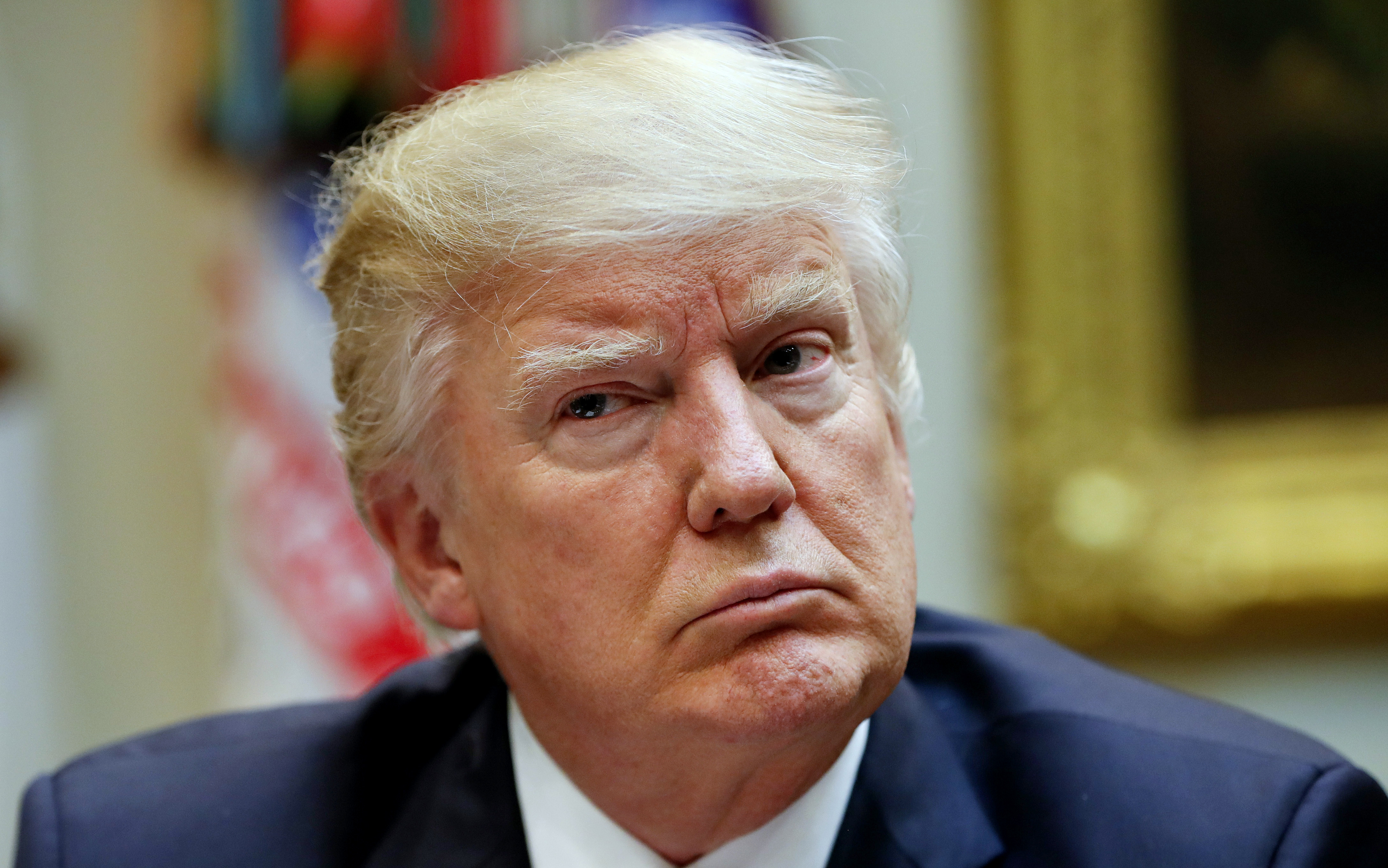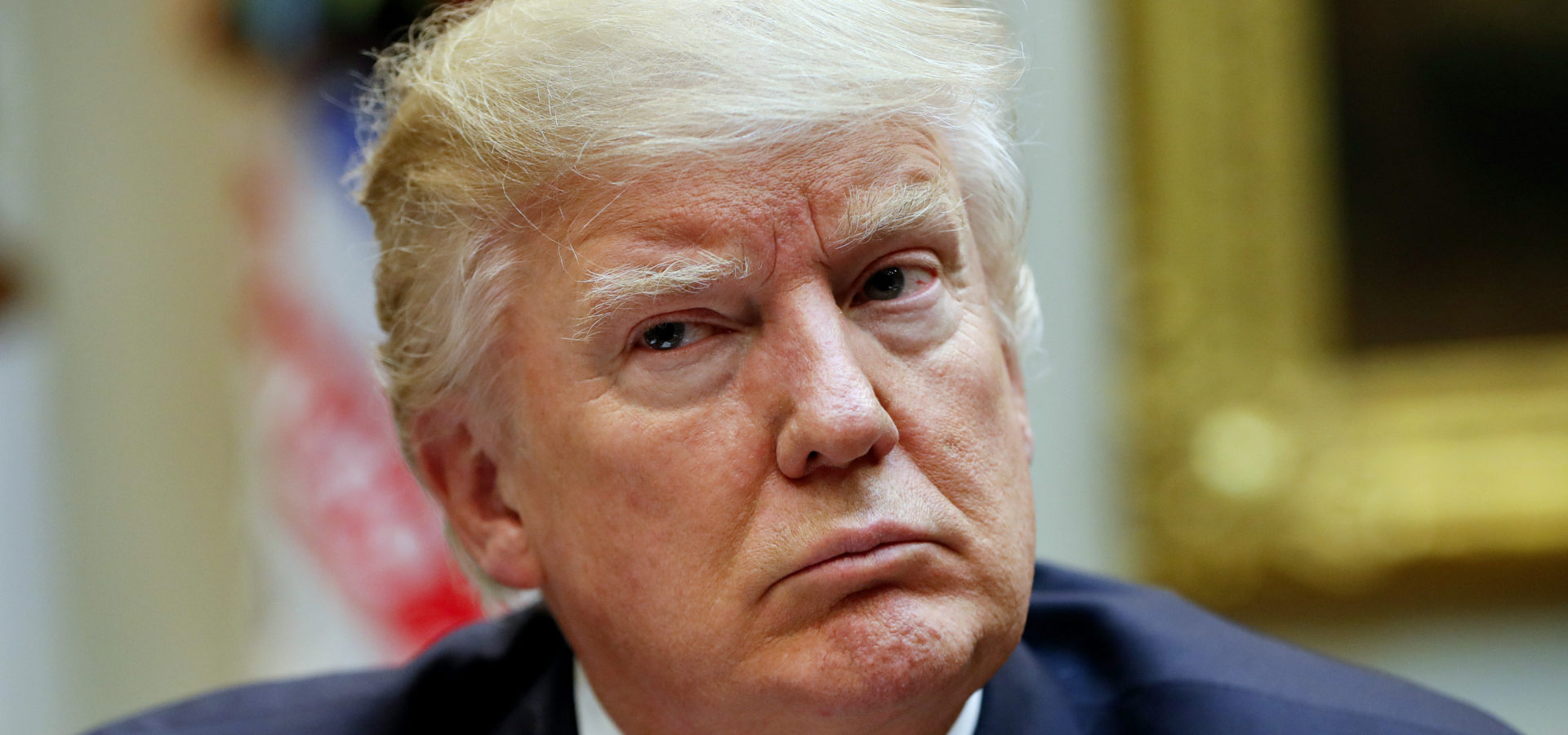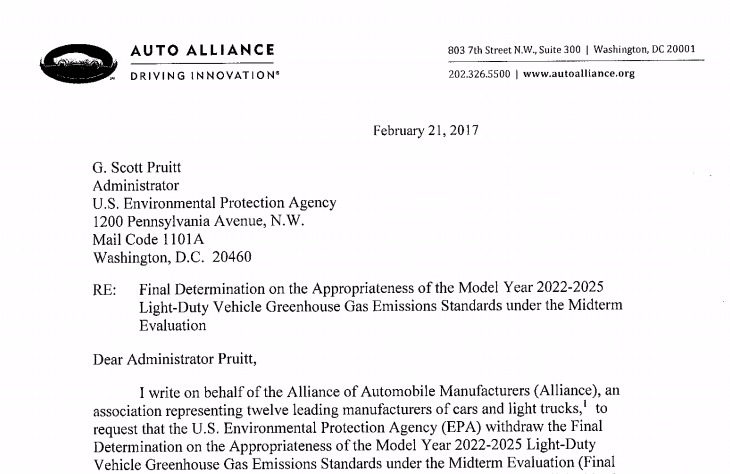
Donald Trump is set to overturn an Obama-era vehicle emissions rule following a letter from top car manufacturers, including Volkswagen.
This comes as the German manufacturer is embroiled in legal disputes over attempts to cheat previous emissions standards.
In a visit to Detroit, the heart of the American auto industry, the President is expected to reopen a review on fuel standards to come into force in 2022.
The move will effectively either weaken or delay the implementation of the new standards.
It follows months of lobbying from the Auto Alliance trade group, which has been writing to President Trump since his victory in last year’s election, asking him to do just that.
Volkswagen, which has come under sustained fire for cheating on vehicle emissions tests, is a member of the trade group, along with BMW, Toyota and 15 other major carmakers and appears to support their stance.
If enforced, the new standards would have underpinned the move towards low-carbon cars such as electric vehicles, and would help reduce greenhouse gas emissions that cause climate change.
In a statement to Energydesk, VW said it is “not recommending a rollback of greenhouse gas emissions standards” but does support the lobby group’s call for a review on which the auto industry would consult.
Read the letters here
Final determination
“For the auto industry, the Final Determination may be the single most important decision that the EPA has made in recent history,” Mitch Bainwol, CEO of the Auto Alliance, wrote to EPA administrator Scott Pruitt late last week.
Bainwol, speaking on behalf of the largest car companies in the world, urged the Trump administration to reverse the decision to maintain ambitious fuel efficiency targets for the middle of next decade: 54.5 miles per gallon of gas (up from
“All we are asking is that EPA withdraw the Final Determination and resume the Midterm Evaluation,” he concludes.
The Corporate Average Fuel Economy rules are there to ensure cars make the most of the gas they consume, travelling a certain number of miles per gallon of petrol.
These standards didn’t change much in recent decades, until the Obama administration called for improved greenhouse gas emissions standards — ramping up ahead of 2025.
There was a ‘midterm review’ due by 2017, on which the EPA – backed by a report from the National Research Council – made a decision before Trump entered the White House.
Despite meeting all previous standards in the initiative, and enjoying an economic resurgence in recent years, the major car manufacturers claim the 2022-2025 target is a bridge too far, allegedly costing the industry $200 billion.
Fewer than 4% of cars currently in production meet the 2022-2025 standard.
Leading Democratic Senators have also written to Pruitt, asking that he hold in place the Final Determination and calling the 2022-2025 emissions targets “economically feasible and technologically achievable for the auto industry.”
Volkswagen
VW appears to have tied itself in knots over its position on the vehicle emissions rules.
In a statement to Energydesk, it said it did not want greenhouse gas emission standards to be weakened, but lifting the Obama administration’s Final Determination would likely lead to just that.
The other members of the Auto Alliance believe the 2022-2025 standards are too stringent and expensive.
VW’s carefully-worded statement echoes a letter sent to Greenpeace earlier this year by VW UK managing director Paul Willis, in which he failed to distance the firm from the lobbying or Trump’s decision.
He said the car company “is not recommending any changes to the Greenhouse Gas standards under review in the Midterm Evaluation,” despite the apparent intentions of its own lobby group.
VW, which was displeased with the initiative back in 2011, even after it was rubber-stamped by other industry players, is facing a myriad of lawsuits from around the world for deceiving vehicle emissions tests.
Statement in full
A VW spokesperson told Energydesk:
“Volkswagen supports the goals of EPA’s “One National Program” for the regulation of greenhouse gas emissions and is not recommending a rollback of the greenhouse gas emissions standards. Volkswagen believes that the MTE process provides an important opportunity for EPA to make certain that the regulations take into account current data, and balance the vital need for CO2 reduction, the preservation of jobs, and consumer acceptance.
“Volkswagen believes strongly that the direction of the greenhouse gas emissions standards is critical to achieving emissions reduction goals that will help to address climate change. Our company is committed to environmental protection and is investing heavily in existing and new technologies that will help to protect the environment and deliver sustainable mobility, today and in the future.
 This work by Energy Desk is licensed under a Creative Commons Attribution-NonCommercial-ShareAlike 3.0 International License.
This work by Energy Desk is licensed under a Creative Commons Attribution-NonCommercial-ShareAlike 3.0 International License.



